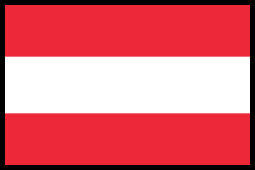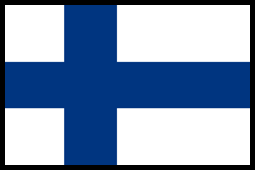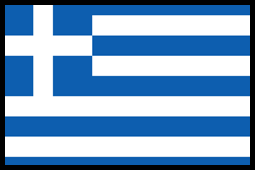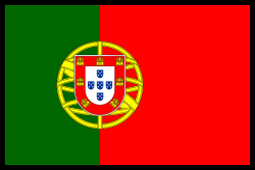Send Gifts In Europe / Bulgaria / Gift Baskets to Plovdiv
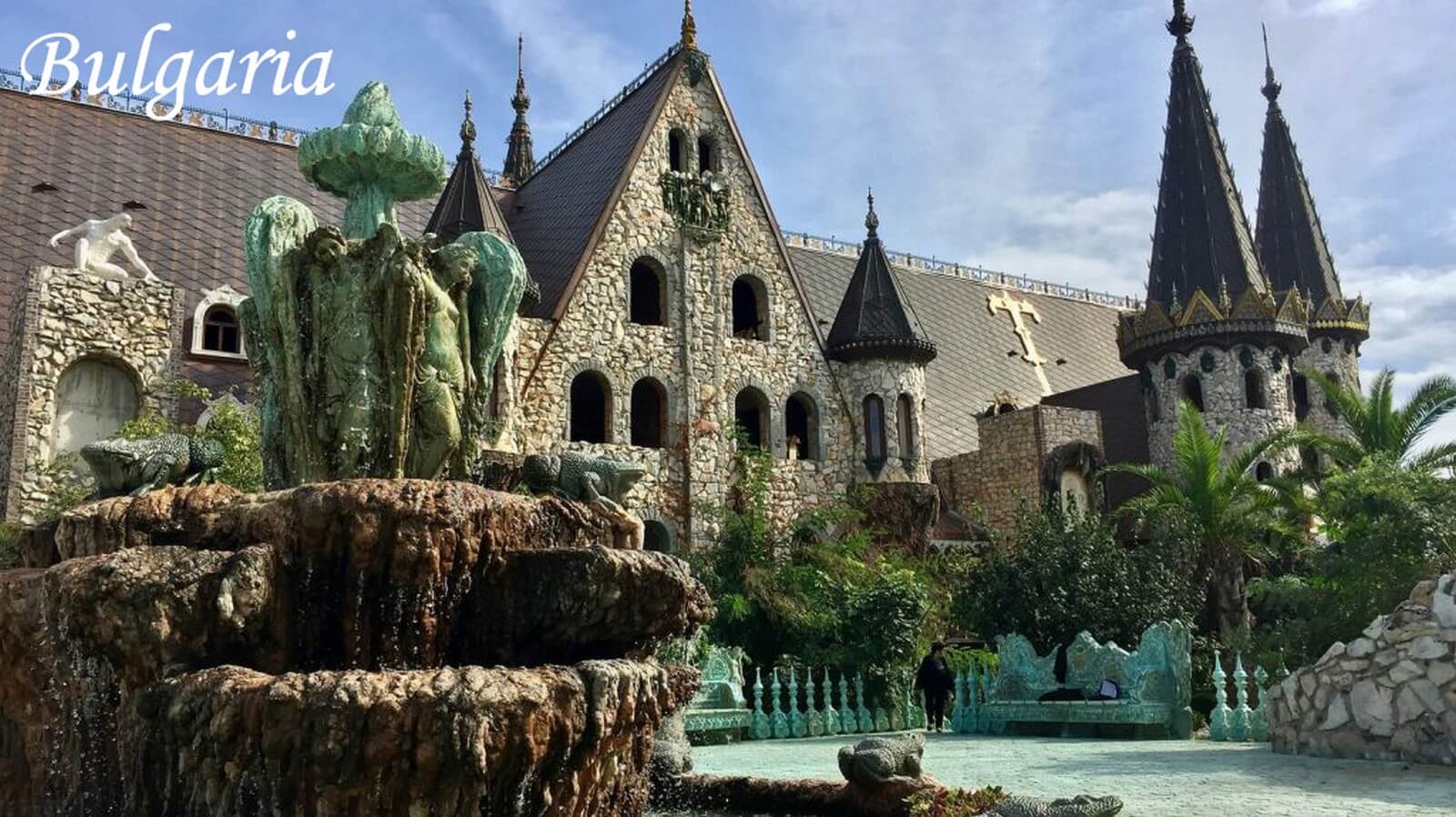
Send Gift Baskets to Plovdiv, Bulgaria
Are you looking for the best and perfect gift baskets to Plovdiv, Bulgaria for your loved one? If yes, you reached the right place.
Plovdiv is an ancient city built around 7 hills, in southern Bulgaria.
Population of Plovdiv: 343,424
The standard delivery method to Plovdiv: 4 – 5 working days*
Express delivery method to Plovdiv: 1 – 2 working days*
*Saturday and Sunday are not included as working days
Use Our Advice
We are here always at your service.
No Minimum Order
Each customer is important to us.
Shipping Information
We deliver all over Europe.
Discover Our Gift Baskets For Every Occasion
Holiday Gifts
Plovdiv Overview
Plovdiv is an ancient city, founded centuries ago in Southern Bulgaria. It has been developed on 7 hills and the Regional Archaeological Museum houses historically significant items, such as mosaic panels, clay lamps, and coins from early times. The Ancient Theatre of Philippopolis was built in the Roman era, designed to seat around 6,000. Today it hosts opera and concerts. Listening to a 3D movie at the Emperor Hadrian-era stadium is like stepping back in time! Plovdiv is the cultural capital of Bulgaria and was the European Capital of Culture in 2019 thanks to its historical significance and modern outlook.
Etymology
History tells us that Plovdiv has been called by many names over the years, Odrysian capital Odryssa (Greek: ΟΔΡΥΣΣΑ, Latin: ODRYSSA) being one of them. It has been recorded in multiple historical texts, dating back to when Theopompus mentioned a town called Poneropolis as he traveled. In a spooky town related to King Philip II‘s false accusers who are also said to have settled the land with 2,000 sycophants and lawyers. Plutarch claimed that the town was named by this king after he had populated it with a team of rogues and vagabonds, but this may have been folklore as there is no evidence supporting this theory. The names “Dulon polis” and “Moichopolis” are likely both derived from the Greek words for “town” (polis) and for “adultery” (moicha), respectively.
Geography
Located southeast of the Bulgarian capital, Plovdiv is on the banks of the Maritsa river. The city is in the southern section of the Plain of Plovdiv, an alluvial plane that forms a large portion of the Upper Thracian Plain. Of course, there are many awesome things to see north of the city; some of the notable destinations include the Sredna Gora mountain range in the northwest, Chirpan Heights in eastern Plovdiv, and the Rhodope Mountains to the south. Modern-day Plovdiv covers an area of 101 km2 (39 sq mi), less than 0.1% of Bulgaria’s total area. It is the most densely populated city in Bulgaria with 3,769 inhabitants per km2. Today, there are six syenite hills inside the city. At the beginning of the last century, there were seven hills in total, but one (Markovo) was destroyed. One of the hills in Plovdiv is called Three Hills (Bulgarian: Трихълмие Trihalmie), the others are called the Hill of the Youth (Bulgarian: Разломув Ralumouv). Mladezhki halm), the Hill of the Liberators (Bulgarian: Хълм на освободителите, Halm na osvoboditelite), and the Hill of Danov (Bulgarian: Данов х.
Climate
The climate of Plovdiv is varied and ranges from humid subtropical to humid continental. There are four distinct seasons with large temperature changes between them. In Summer (mid-May to late September) the temperature averages 33 °C during the day and around 16 °C at night, which remains hot enough for being outside for most of the time. Occasionally though, there can also be a few days around 40°C. Autumn starts in late September; Daytimes are long, but warm in early autumn. The night-time temperatures drop off significantly by September and the first frost usually hits around November. Winter is normally cold and snow is common. People in Plovdiv don’t have to worry about snow, as the average number of days covered in it is 15. The average depth of snow reaches 2 to 4 cm (1 to 2 in), and the maximum level is usually 6 to 13 cm (2 to 5 inches). Spring officially starts on March 1st and is usually a little bit colder than Fall. The frost season usually ends in late March. Days get warm in mid-Spring.
The average relative humidity is around 73% and the highest it gets in December at 86%. It’s lowest in August, at 62%. The number of days that have precipitation is 540 mm (21.26in) and is fairly even throughout the year. The wettest months of the year are May and June with 66.2 mm (2.61 in) and the driest month is August with 31 mm (1.22 in). The average wind speed in the city is 0 to 5 m/s, which is around 50% of the wind during the year. The city receives an average of 33 days of mist per year and there are days when it’s “so foggy that you can hardly see your hand in front of your face or across the street.”
History
The history of this region spans centuries. Today numerous nations have had impacts on the culture in this city, with many traces left. The earliest signs of habitation in this area date back to the 6th century BC when Thracians settled and established a settlement here before present-day Plovdiv came into existence. Plovdiv is home to a lot of ancient settlements. Some necropolises are estimated to have been built between 6000 and 5000 BCE by Neolithic tribes. This includes Yasa Tepe 1 in the Philipovo district and Yasa Tepe 2 in Lauta park. Archaeologists have found highly decorated pottery and objects of everyday life on Nebet Tepe, dating back to the Chalcolithic era. This shows that in the 4th millennium BCE, there was a well-established settlement there that would continue to grow. Recent archaeological excavations have unearthed Thracian necropolises that date back as far as the 2nd millennium BCE. Back in ancient times, the town was established around the 2nd and 1st millennia BCE. The town has been a form of the Thracian tribe Bessi since 516 BC. Darius the Great had included Thrace in Persian Empire when he was ruling, Mardonius, the Persian general, subjugated Thrace again after the Greco-Persian Wars (499 – 449 BCE). The region nominally became a vassal of Persia and remained that way until 479 BCE. The town became part of the Odrysian kingdom (460BCE – 46CE), a Thracian tribal union. The town was conquered by Philip, king of Macedon, and the Odrysian king was deposed in 342 BCE. Ten years after the Macedonian invasion, Thracian kings started to rule again after Odysseus III had established their kingdom under Macedonian suzerainty. The Odrysian Kingdom gradually overcame Macedonian suzerainty, while the city was destroyed by Celts in a 270s BCE Celtic settlement. It was Philip V of Macedon who conquered it in 183 BCE.
Population
The municipality of Plovdiv is the second biggest city in Bulgaria with 380,682 permanent residents. According to NSI data, the population of people that live in Plovdiv is 346,790. As of 2012, the population of Plovdiv was 339,077 with an area of 195.1 km² and a municipal population density upwards of 1300/km².
City government
The mayor of the Municipality of Plovdiv, Ivan Totev, with the six district mayors represents the administrative center of Plovdiv Province. These are responsible for overseeing and working to develop various aspects related to social welfare such as healthcare, transport, and education. The municipal council consists of 51 councilors, who have been voted by their party’s list. These parties are elected by a proportional system. The executive government of the Municipality of Plovdiv consists of a mayor who is elected by majority representation, five deputy mayors, and one administrative secretary. All the deputy mayors and the secretary control their administrative structure.
Main sights
There are over 200 archaeological sites in this city, 30 of which are of national importance. There are many remains from antiquity. The city of Plovdiv has two ancient theaters, remains of medieval walls and towers, Ottoman baths and mosques, and a well-preserved old quarter from the National Revival period with beautiful houses, churches, and narrow paved streets. There are dozens of museums, galleries, and cultural institutions. Plovdiv hosts a variety of musical and theatrical shows as well. The main street, Knyaz Alexander I Street, is also the site of many performances. If you are interested in visiting the region, then the city is a good place to start. It can easily be reached from other parts of Bulgaria and often has direct transport links to other major destinations. To the south lie Pamporovo ski resort at 90 km, Hisarya spa Resort at 45 km, or Bachkova Monastery which is 30 km away.
Economy
Plovdiv is in the middle of a rich agricultural area, but its economy has switched to industry for a long time now. Food processing, tobacco, and brewing are still big industries there. Textiles used to be important too, but less so nowadays. Once Communism was implemented in the city, heavy industry became the most dominant aspect of their economy. The collapse of communism and the planned economy in 1989 freed up Bulgaria’s industries to focus on lead, zinc, machinery, electronics, motor trucks, chemicals, and cosmetics. The regional economy of Plovdiv plays an important role in Bulgaria’s, contributing to 7.5% of the country’s GDP in 2014. As of that year, over 35 thousand companies are operating there and they created jobs for 285,000 people. Plovdiv has many advantages including a central location, good infrastructure, and a large population. Plovdiv has an international airport and is connected to the Trakia motorway. This provides easy access for people traveling from Bulgaria and abroad, making the city a thriving hub. One of the advantages of Sofia is its proximity to the Maritsa motorway, Bulgaria’s main corridor to Turkey. It also has a well-developed transport infrastructure and this has enabled it to become the country’s leading city as far as industrial output. Plovdiv has been a chief point for commerce, industry, trade, and communications for centuries. Apart from being a hub for industrial development in Plovdiv, the IT industry has been one of the major drivers of the city’s growth in recent years. It is also worth mentioning that tourism has grown at an impressive rate over the past 5 years.
Transport
Plovdiv’s geographic location makes it an important transport center in Bulgaria. The city is the country’s primary hub for southern railways and major roads. The Trakia motorway (A1) is only 5 km to the north, with Sofia not much farther away to the west. The transportation is diverse in this area, Blah blah blah, there are a lot of different bus routes to lots of other cities. The city has a well-developed public transport system including 29 main routes and 10 extras. However, there are no tramps in the city or trolleybuses. Six bridges span the Maritsa river including two railways. Plovdiv has good cycling infrastructure – routes which cover the south, southwest, and north of the city are available. There are 60 km—or 37 miles/48 km and 7.5 miles—of bike paths in the city. There are a total of 690 bike parking spaces available throughout the city. The Plovdiv International Airport is near the village of Krumovo, 3 miles (5 km) southeast of the city. Charter flights from Europe and regularly scheduled services with Ryanair to London and S7 to Moscow are available. Many small airports are nearby in the city’s area, such as Graf Ignatievo Air Base in Graf Ignatievo to the north of Plovdiv.
Education
Regarding education, it’s worth mentioning that around two-thirds (62.38%) of citizens have a secondary or higher education. That statistic went up from 1992 to 2001. Plovdiv has 78 schools, with 10 private ones. 36,964 pupils were registered in 2005 but the number decreased from that point onwards. One of the most prestigious schools in Bulgaria is the English Language School. They offer a wide variety of prestigious programs such as high-quality education from elementary to university levels, incorporating mathematics and programming. Another one is the National School of Commerce – Plovdiv, which has a wide range of programs from general arts to business management.
Sports and recreation
Football is by far the most popular sport in our city since we have 3 professional football teams. PFC Botev Plovdiv, founded in 1912 and PFC Lokomotiv, founded in 1926. Our two teams are a regular fixture in the top Bulgarian league. As the rivalry between them is relatively newer, it’s considered to be even more heated than that of Levski and CSKA from Sofia. There are two other football clubs in the city; Maritsa FC (founded in 1921) and Spartak Plovdiv (1947).
Is Plovdiv worth visiting?
Surrounded by a unique range of culture and architecture from the Antiquity, Middle Ages, and Bulgarian Revival, Plovdiv is located on three hills. The best way to spend time walking in an old town is by visiting its stores and museums. You’ll be amazed at the amount of charm it has!
Top 12 Things to See and Do in Plovdiv
Ancient Amphitheater
The Ancient Theatre is perched on top of a hill looking over one of the busiest boulevards in the city. It still has its original Roman seats – most of the time, it wasn’t an entertainment venue for Romans but was used as a venue for large speeches. It did host Gladiator fights though! Today, you can watch live music concerts or opera performances at the Amphitheater in the summer.
The Roman Stadium
Plovdiv was once called Philipopolis by the Romans and was a large center for sporting events. These days, though, the stadium is buried under a pedestrian street and you can’t see its end. Take the escalator down and it’s on your left.
The Old Town
The old town of Plovdiv is perched on top of three hills, so be sure to wear comfortable shoes. Most of the Revival-period houses in the Old Town are now museums and you will have to walk up cobblestoned streets. If you have to choose one, Balabanov’s House, the Ethnographic Museum, and the History Museum are among the most magnificent.
Kapana Art District
A legend says that the name Kapana is from the intricate streets that are constantly crossing with each other, as well as changing directions and ending in dead ends. Once you find your way into Kapana, it’s hard to get out. Kapana is a very lively art district full of colorful, creative people and activities. You’ll find many bars, shops, ateliers, and events.
The Singing Fountains
One of the main features of the Tsar Simeon Garden is its Singing Fountains – a must-see during the summer. Every evening they have an animated light and water show that starts at nightfall.
Dzhumaya Mosque
The Muslim mosque is on the main pedestrian street next to the Roman Stadium. It used to be the first and main mosque where people would pray on Friday, hence the name. There’s a Turkish cafe next to its entrance that can give you a taste of real Turkish coffee and homemade pastries.
The Rowing Canal
This is the place to go if you’re looking for a new running, biking, and walking spot. The canal was often used for competitive sports events or sports training but it’s most popular among locals as a leisure spot. The Plovdiv Zoo is conveniently located nearby.
The Natural History Museum and the Planetarium
New additions to the Natural History Museum in Plovdiv include a planetarium that plays short documentaries about the universe and our planet. Make sure you go to see it while in town!
The Archaeological Museum
Plovdiv is one of the oldest cities in Europe and its history dates back to 4000 BC. Knowing this, it’s a must-see if you are interested in experiencing European cultures. One of the attractions is the Archaeological Museum which has some interesting findings and artifacts from as early as 4000 BC with plenty more throughout history to see. Just across from that museum.
Sunset at one of the hills
Climb any of the hills of Plovdiv for a beautiful sunset. The old town is located on top of three hills, so try and climb anyone! Alternatively, there is a hill with an Alyosha monument on top that offers a great view too.
The Children’s Railway
If you’re traveling with children, or even if you’re a child at heart, be sure to plan a trip to the Children’s Railway. This little train will take you on an epic journey, through the tunnel and up one of Plovdiv’s hills.
Aqualand Water Park
Summer is the perfect season for a seaside trip, but Plovdiv’s River Struma Aqua Park can be just as entertaining. Choose from slides of all levels or simply sunbathe and enjoy the view of Varna Bay.
Send Gift Baskets To Plovdiv
Sending gifts to Plovdiv is very easy with Walwater Gifts in Europe. Walwater Gifts offer a variety of gifts for delivery in Plovdiv. No matter who you are buying for or what the occasion – Christmas Gifts to Plovdiv, Birthday Gifts to Plovdiv, Wedding Gifts to Plovdiv, New Baby Gifts to Plovdiv, Anniversary Gifts to Plovdiv, or Sympathy Gifts to Plovdiv, we have the perfect gift.
Walwater Gifts Holiday Gifts in Plovdiv
As we know, People in Plovdiv celebrate many different holidays that Walwater have a gift solution for each of them. We can deliver Christmas Gifts to Plovdiv, Valentine’s Day Gifts to Plovdiv, Mother’s Day Gifts to Plovdiv, Birthday Gifts to Plovdiv, Online Gift Store in Plovdiv, Corporate Gifts to Plovdiv, Business Gifts to Plovdiv, Easter Gifts to Plovdiv, Holidays Gifts in Plovdiv, Father’s Day Gifts to Plovdiv, etc.
Walwater Gifts is offering Express gifts delivery Gifts to Sofia, Gifts to Plovdiv, Gifts to Varna, Gifts to Burgas, Gifts to Rousse, and anywhere else in Bulgaria.
Delivery information for Plovdiv
Standard duration (without weekends and public holidays):
*4 – 5 business days (Monday – Friday).
Express duration (without weekends and public holidays):
*1-2 business days (Monday – Friday).
Gift Orders received by 12 am (+1 GMT) Walwater Gifts utilize several different shipping methods, always trying to find the best solution for you. Ground shipping 4-5 business days.
Please note that packets are delivered by DHL courier in Plovdiv. Therefore DHL will not work on Saturdays, Sundays, or Holidays.
Walwater Gifts Shipping information
When you provide us with complete and accurate delivery information, your gifts will be delivered promptly and you will be spared re-delivery charges. Please check your delivery address carefully. Incorrect or incomplete addresses will result in a € 20,00 handling charge in addition to all charges accrued for re-shipping each item. We cannot ship to P.O. Boxes.
Gifts to Hospitals or Hotels
Please confirm the recipient is still in the hospital/hotel before scheduling the delivery. When placing a gift basket order for delivery to a patient/guest please make sure that you include as much information about the patient’s/guest’s location as possible. Such as patient/guest’s name, Hospital, Department (i.e., Maternity), and Room No. and the Hospital’s complete address.
Shipping restrictions:
Based on the reason that we are sending our gift baskets to Plovdiv from our European office, there are no Shipping Restrictions. Therefore this all includes Walwater Gifts which contain alcohol brands gifts to Plovdiv.
Cities we deliver to Bulgaria
Walwater Gifts deliver all over Bulgaria. At Walwater Gifts to Plovdiv, we have extensive experience in sending gift parcels all over the world. However, each country has unique Customs Regulations and delivery times. Please feel free to contact us if you have any questions or need assistance placing your order online.
Delivery of our Gift Baskets to Europe
We deliver our gifts & gift baskets everywhere from small towns to major cities to 25 European Countries. Walwater Gifts delivers gift baskets to Austria, Belgium, Bulgaria, Croatia, Czech Republic, Denmark, Estonia, Finland, France, Germany, Greece, Hungary, Ireland, Italy, Latvia, Lithuania, Luxembourg, the Netherlands, Poland, Portugal, Romania, Slovakia, Slovenia, Spain, Sweden.
10 Excellent Reason For Send Gifts In Europe
- We are a European provider with delivery to 25 European countries
We ship our gifts to European Union countries, such as Austria, Belgium, Bulgaria, Croatia, Czech Republic, Denmark, Estonia, Finland, France, Germany, Greece, Hungary, Ireland, Italy, Latvia, Lithuania, Luxembourg, the Netherlands, Poland, Portugal, Romania, Slovakia, Slovenia, Spain, Sweden.
- Walwater Gifts is an original gifts manufacturer, without a middleman fee
SendGiftsInEurope is an original gifts producer, every gift is hand-made in our warehouse
- We have more than 10 years of experience
For more than 10 years we do our best to keep all our customers happy and satisfied
- Fast delivery
Deliveries throughout the European Union from our warehouse, resulting in faster delivery times
- Low shipping charges
Due to our central location in Europe, we provide low shipping charges for Europe and we guarantee no hidden delivery costs in our prices
- All our Gift Baskets contain well-known trademarks products
Selecting only the finest brands, no supermarket food brands because we believe gift baskets should be something special
- We test all wines and foods before we put them in our gifts
All our wines are tested and approved by the management and the staff (no, we’re not constantly drunk, but a glass or two of wine is perfect for inspiration)
- Branded gifts
Walwater Gifts may offer branded gifts. We can customize the entire gift with your company logo, name, ribbons, and more
- Additional gifts available – add ons
We understand that we cannot always fit all needs which is why we offer additional gifts for each gift basket in our range. Add as many bottles of wine, Teddy bears or other gifts with no extra shipping charges – personalize it! And we have free cards!
- Gift baskets for every occasion
SendGiftsInEurope offers gifts & gift baskets for every holiday and occasion in Europe
Sign Up for exclusive offers
We proudly accept






































